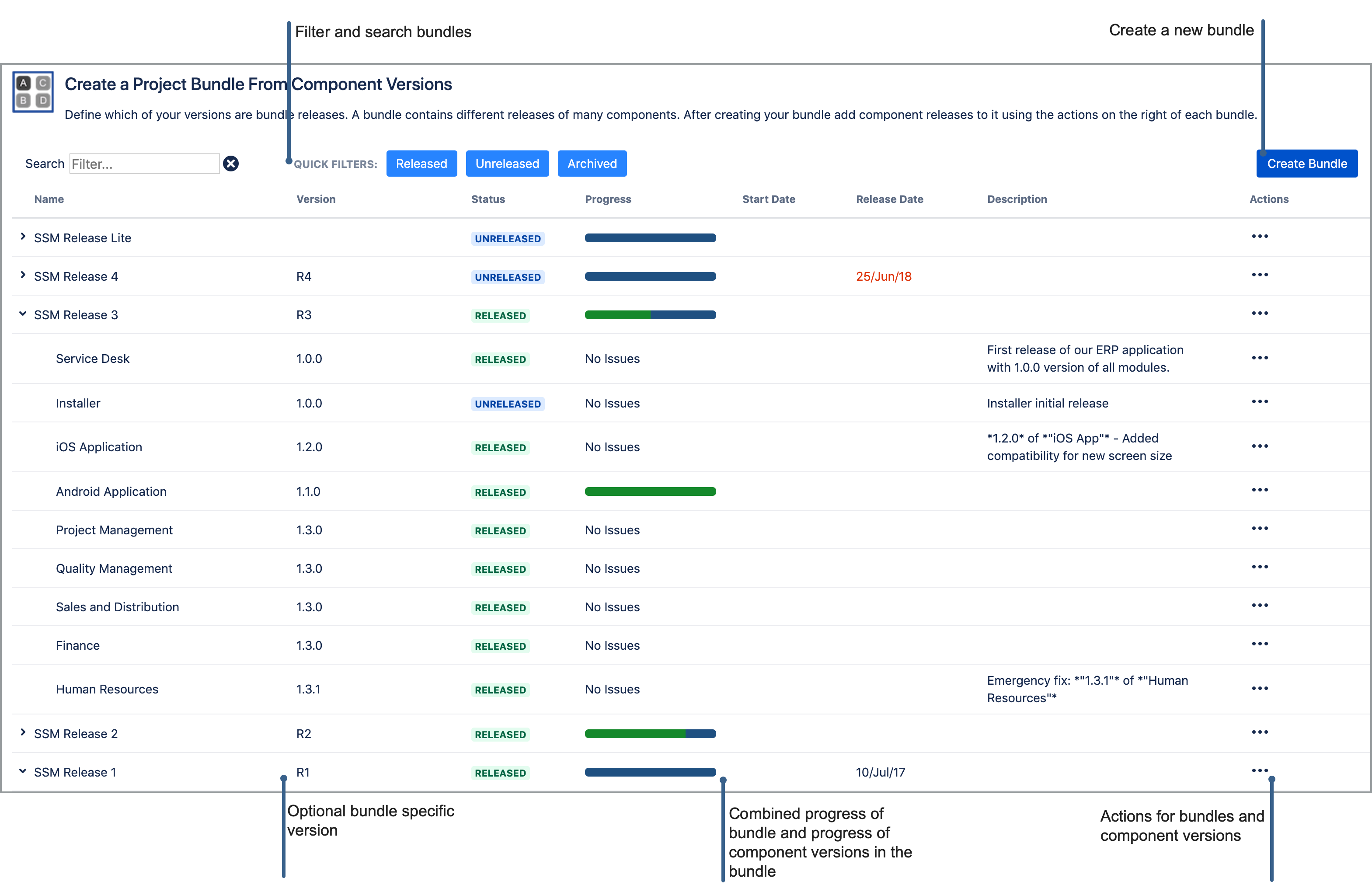Another major functionality of the plugin is Bundles. You can group different components having different versions into a bundle with an optional bundle version. You could use bundle name or bundle version to search all issues found or fixed in a specific release of bundle. In other words bundle is a higher level grouping of component versions inside a project. This grouping is helpful when you are releasing a lot of independent components from a project as a product. Your customers or QA teams may not know the detail of each component or their versions, it is a lot easier for them to refer to whole release with a common version or name. It is better to explain this with an example. Assume that we are developing a software as a subcontractor to a shipyard for modernization of a frigate and we are providing following softwares for them.
- Navigation Software
- Radar Control Software
- Tactical Consoles
- Track Management Software
All of this are components in our modernization project inside JIRA. Each of them are released with different version numbers at different times passed to QA for test. But at certain milestones they are taken to shipyard and deployed on the frigates. It is a lot easier to refer to whole release with a common version and name, that is with a bundle name and/or version. Development teams may continue to work on different component specific versions and all the other non technical teams who don't need to know details may report the bugs with bundle version number and name. Reporting may be performed on the higher level bundle name and/or version.
There are two major usage for bundles, first reporting an issue against a bundle without specifying a component and the second is querying issues related with a bundle. Reporting issues against a bundle may be achieved by leaving component field empty and selecting a bundle version for "Affects Version" or "Fix Version" field. Later your development team may detail the issue with component and version, clone issue to related components, create sub-tasks for related components etc. How the issue is handled after it is reported against a bundle is completely specific to the way your team works. Whether issue is reported only with bundle version or it is reported against a component inside the bundle you can always query issues related with a bundle using JQL extensions.
Bundle Settings
Depending on your add-on settings different versions may be shown if you leave component field empty:
- All project versions
- Only bundle versions
- Project versions if no bundle version is created
Please check add-on's settings.
Bundle Context Menu Actions
- Release Notes: Shows release notes for the bundle. You can find more details about bundle release notes here.
- Fixed Issues: Shows issues fixed in this bundle on the issue navigator.
- Reported Issues: Shows issues found in this bundle on the issue navigator.
- Add Component Version: Allows adding new component and version pair to bundle.
- Clone: Creates a clone of the bundle. Adding each valid component-version pair to a bundle is time consuming it is much easier to clone a bundle and change necessary information after cloning. "CLONE -" prefix is automatically added to newly created bundle.
- Edit: Allows editing bundle information; version, release status, release and start dates and description
Component Version Context Menu Actions
- Release Notes: Shows release notes for the component version. You can find more details about bundle release notes here.
- Fixed Issues: Shows issues fixed in this component version on the issue navigator.
- Reported Issues: Shows issues found in this component version on the issue navigator.
- Remove: Removes this component version from bundle.
